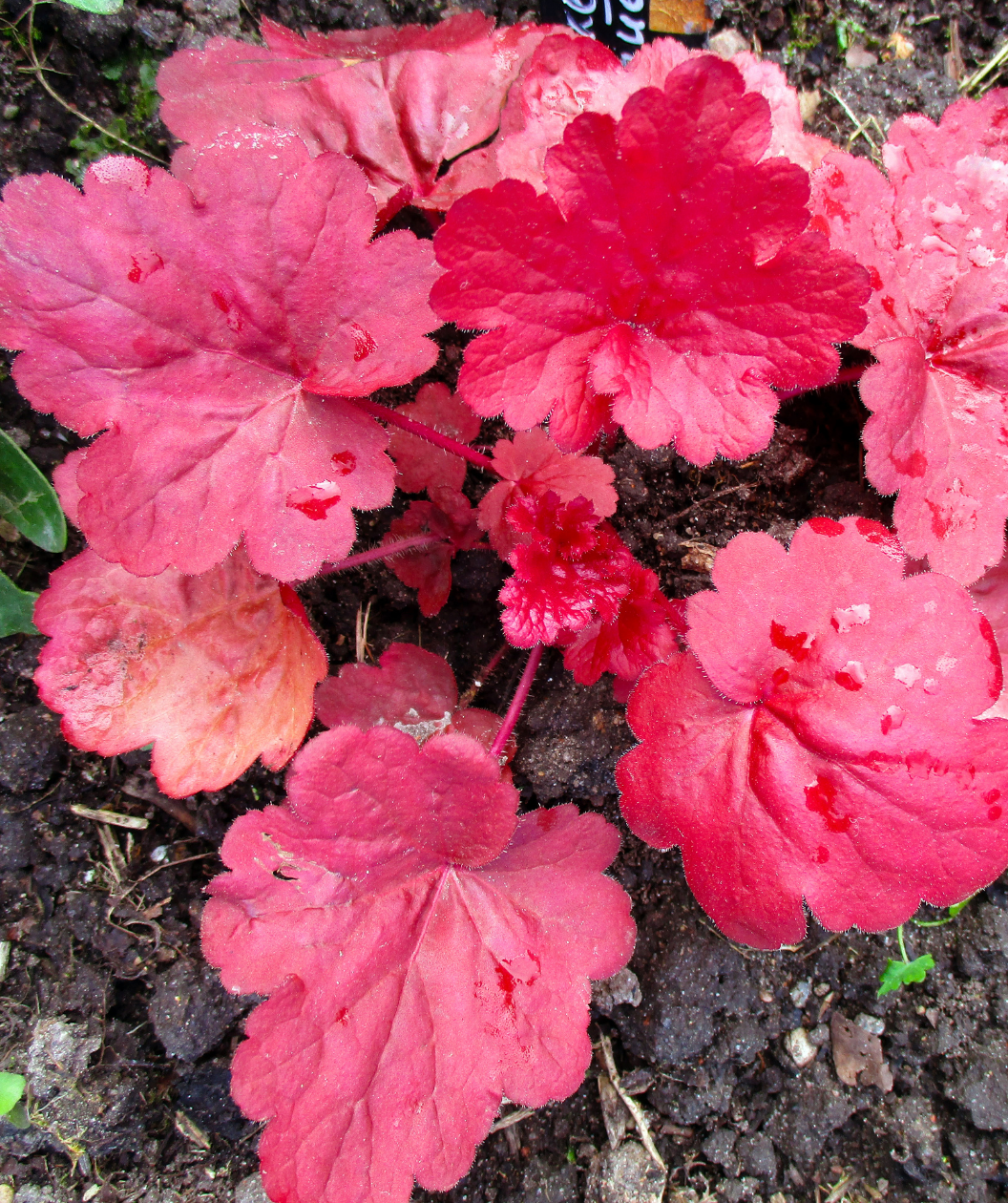


FIERY FOLIAGE WITH BEAUTIFUL BLOOMS IN SUMMER
FEATURES:
- Ruffled foliage starts as a pinkish-purple and then ages to a blazing red
- Delicate pinkish-white blooms adorn the reddish-pink stems in summer
- Plant along your walkways and foundation or in a container to give a vivid pop of color all season long
- Can be evergreen in warmer climates
- Pollinator friendly and deer resistant
- Hand Selected, Fresh from the Grower
- Ships in a plant-safe designed box
Growth Facts
- Hardiness Zone: 4-9
- Mature Height: 18-24" tall
- Mature Width: 24-30" wide
- Exposure: Full Sun/Part Shade
- Spacing: 24-30" apart
FIERY FOLIAGE WITH BEAUTIFUL BLOOMS IN SUMMER
FEATURES:
- Ruffled foliage starts as a pinkish-purple and then ages to a blazing red
- Delicate pinkish-white blooms adorn the reddish-pink stems in summer
- Plant along your walkways and foundation or in a container to give a vivid pop of color all season long
- Can be evergreen in warmer climates
- Pollinator friendly and deer resistant
- Hand Selected, Fresh from the Grower
- Ships in a plant-safe designed box
Growth Facts
- Hardiness Zone: 4-9
- Mature Height: 18-24" tall
- Mature Width: 24-30" wide
- Exposure: Full Sun/Part Shade
- Spacing: 24-30" apart
Why plant Magma Coral Bells?
An inferno of pinks and reds are spilling over into your landscape with the Magma Coral Bells. Plant the molten foliage on its own island or alongside your colorful garden beds to complement their presence in the landscape. There is never a dull moment with these striking colors of large and vibrant leaves, adding a long summer season of blooming flowers. Tall stems reach out with petite clusters of pink flowers, adding vivid color to even the shadiest areas of your garden. Leaves darkening to an elegant burgundy in fall, you will bring a new level of red hot flavor to your backyard with Magma Coral Bells. There is nothing like it, adding beautiful contrast wherever planted and giving you ease of mind with its low maintenance, heat tolerance, and just all-around vigor.
The Coral Bells genus name honors an 18th-century German physician, botanist, and Wittenberg University professor, Johann Heinrich von Heucher. These enchanting woodland plants began being grown for their evergreen foliage and charming floral display. In the last few decades, they have grown enormously in popularity, and new cultivars are breaking through every season.
How to use Magma Coral Bells in the landscape?
As Magma Coral Bells bring the heat in vibrant color, they are the got-to-stunning shade-tolerant plant, brightening dark spaces. They wonderfully plant in patio containers and are perfect for any sized landscape.
Planting Zones
Hardiness Zone: 4-9
How To Plant Magma Coral Bells
Most Coral Bells do best in the morning sun, with shade during the hottest part of the day. Bright light will bring out the richest coloring in their foliage. Plant Magma in any type of soil; this coral bell is not picky! You'll find that once established, Magma is pest, disease, and even deer resistant, plus it will also be drought tolerant. This easy-to-grow spirit will also shine in full shade! So get ready to wow your garden or patio containers in bright colors!
How To Water
Water twice weekly for the first 3-5 weeks; then water weekly for the remainder of the year until winter. When you water, water slowly and thoroughly. Watering needs may be altered due to extreme weather conditions.
How To Fertilize
Incorporate Elements Starter Plant food granular form into the soil when planting. If planting in spring or summer start fertilizing late fall using Elements Starter Plant food granular form on an annual basis each late year. Continue this for three years to get your plant well established.
How To Prune
Each fall, just before winter sets in clean up the previous years foliage and compost it. Be sure your perennials are mulched well for winter protection. Two inches of an organic mulch will do the job. Consider leaving the plant debris in place through the winter and doing your clean up on the weather warms in the spring. While it doesn't make things neat and tidy, the debris provides overwintering protection for insects, their eggs and pupae including our native Viceroy butterfly.




